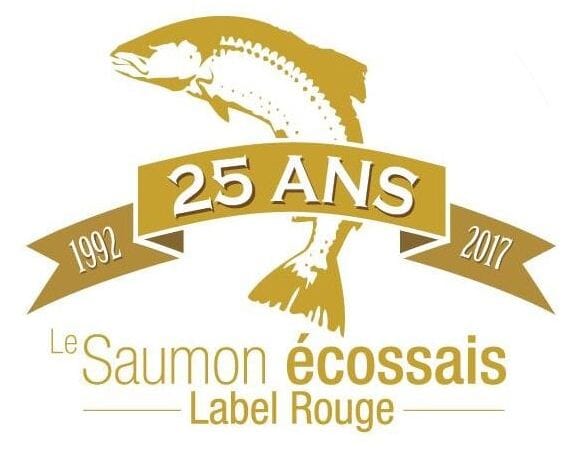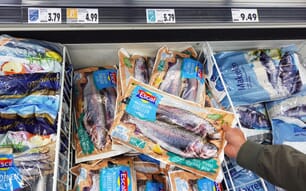Guests, who initially gathered at the MacDonald Holyrood Hotel, included Scottish Government representatives, leading UK fishmongers and buyers – such as JCS Fish, JK Thomson and M&J Seafoods – importers, processors, journalists and some of France’s top Master Chefs.
John Webster, Technical Director of the Scottish Salmon Producers Organisation (SSPO), kicked off proceedings by providing a whistle-stop tour of the history of the Scottish salmon industry – from its pioneering days to the industrialised and efficient industry we know today. He also informed the audience that Scottish Farmed salmon was the first non-French product to gain the Label Rouge accolade, back in 1992. Last year 7,984 of the 177,000 tonnes (estimated) of salmon produced in Scotland were sold under the prestigious label.
He was followed by Gilpin Bradley, interim chair of the SSPO, head of Wester Ross Fisheries and second generation salmon farmer. Born in the same year as the salmon farming industry started in Scotland, he was well placed to reflect not only on the 5-decade past of the industry but also offer some thoughts on what the future might hold.

In terms of the former he recalled a time when some things were better – in the 1970s salmon could be put on a train at Lochailort one day and sold fresh at Billinsgate market in London the next morning; while other things were worse – he recalled with a wry smile that back in the early days several producers lost fingers to primitive processing machines. Some of these digits were, he claimed, preserved for posterity in jars in the early processing plants.
Looking ahead, however, he emphasised the need to ensure that the enthusiasm of a third generation of salmon farmers was fired up by the industry.
“We can’t ignore the need to keep promoting our industry in schools…the people are still the most important part of the industry…it’s terribly important to keep inspiring the next generation,” he reflected.
He was followed by James Withers, Chief Executive of Scottish Food & Drink, who kicked off by mentioning the political uncertainties – posed by impending Brexit, the announcement of a second referendum for Scottish independence and the reality of President Trump’s tenure in the White House.
However, he observed, that while Brexit could be catastrophic for the beef industry, the salmon industry is much better placed to adapt – even if the UK leaves the Common Market, he thought it “would probably lead to 2% tariffs on fresh salmon and 13% on smoked products” being imported into the EU from Scotland. Moreover, he applauded the fact that Scottish salmon has managed to spread its market – while 96-97% of beef exports go to the Continent, salmon has a much more diverse global spread.
He pointed out that this was a trend that the whole food and drink industry needed to take note of.
“Up to 10 years ago we were exporting more [food & drink] to Belgium than the whole of Asia,” he pointed out.
He also emphasised the need to maintain a solid domestic market.
“Every successful export sector that I’m aware of has a strong base in its home market,” he reflected.
Looking ahead he also provided a checklist for how to ensure the industry continued to thrive.
These included the need to build the brand, balance markets, invest in skills and innovations, “collaborate or die” and ensure responsible, profitable growth.
“There are not many things where we [Scotland] can be a world leader but I think aquaculture can be one,” he concluded.
The day was rounded off with a 5-course dinner in the impressive surrounds of Edinburgh Castle’s Queen Anne Room, where the menu – unsurprisingly – included hot smoked Scottish salmon.


